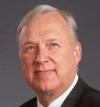Where Does the Church Stand?It
is clear that many religious ethicists oppose genetic discrimination.
In 1989, the Church and Society commission of the World Council
of Churches released a study document, “Biotechnology: Its
Challenges to the Churches and the World,” which draws attention
to “unfair discrimination...in work, health care, insurance
and education.” This clear stand against genetic discrimination provides a solid foundation from which to build an ethical proposal, but it stops here. There are hints that church ethicists will side with those who advocate privacy; and there are hints that they favor some sort of national program which guarantees health care to everyone. What we do not yet see among religious leaders is any overall vision regarding the potential value (or nonvalue) of widespread use of genome information for health care delivery.
Email link | Printer-friendly | Feedback | Contributed by: Dr. Ted Peters |






